
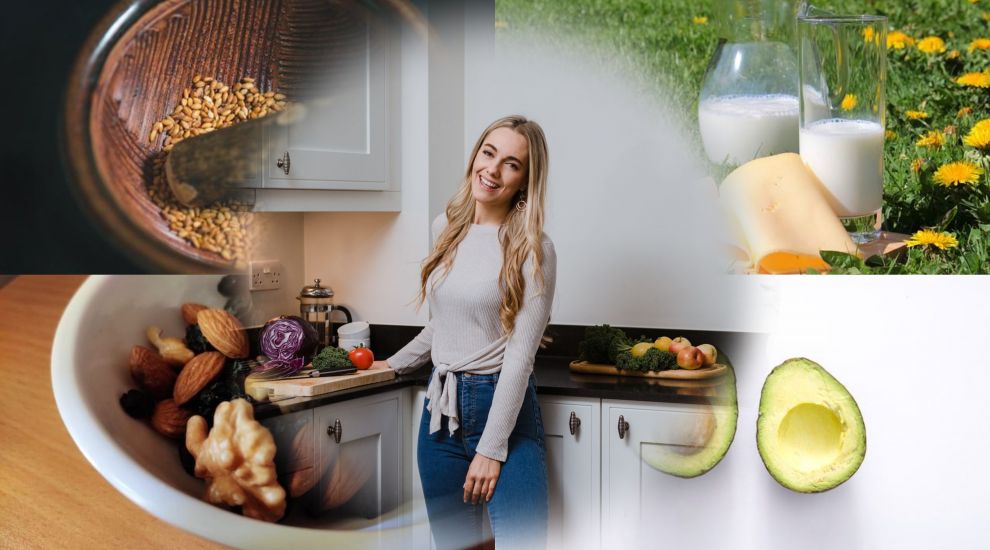

A local nutritionist who specialises in cycle health has shared how five nutritional tips to help support the transitional phase of menopause.
Jessica Pinel is the founder of Humankynd nutrition. Her main areas of interest are fertility, cycle health and gut health.
"Throughout our lives as women, we transition through the different stages of womanhood, from child to adolescent to adulthood and beyond. Menopause represents a new transitional phase whereby a woman leaves behind her fertile years starting 12 months after her last period.
Many women report an array of symptoms including hot flushes, weight gain, brain fog, disturbed sleep and the list goes on. But ladies, listen up! Did you know that nutrition can help us manage many of these symptoms? Here are five simple nutrition steps you can take to support your transition.
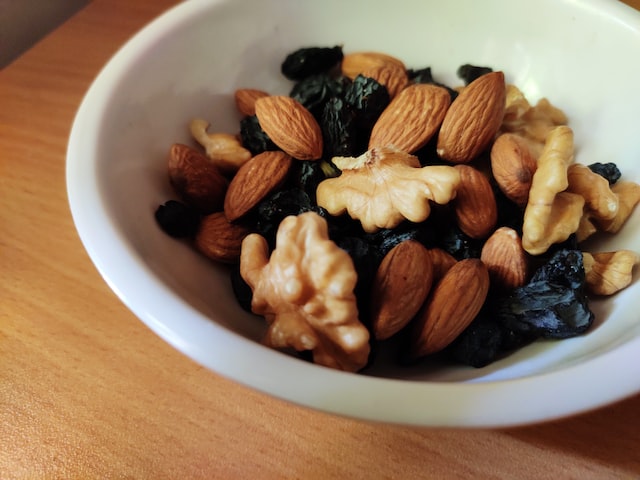
Pictured: Nuts are rich in fibre.
Hormonal changes during menopause may result in sluggish digestion, bloating and constipation. The best approach to counteract this is to increase your fibre and fluid intake. It's recommended to consume 30g of fibre a day but the UK average is 18g, 60% of what it should be.
High fibre foods include fruits, vegetables, nuts, seeds and whole grains.
The best way of checking if you are well hydrated is to observe the colour of your urine. A pale straw colour indicates good hydration levels. If it is any darker you need to drink more.
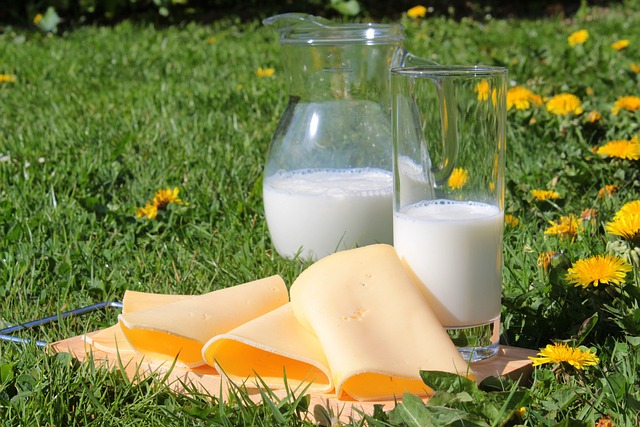
Pictured: Foods that are high in calcium include dairy, leafy greens and fortified products.
During the menopause, oestrogen levels decline causing the rate at which calcium is lost from bones to speed up dramatically, which leads to an increased risk of developing osteoporosis. It is therefore important to boost your intake of calcium and vitamin D.
Foods that are high in calcium include dairy, leafy greens and fortified products.
Vitamin D rich foods include oily fish, red meat, liver, mushrooms and egg yolk.
We cannot get enough vitamin D from our diet alone so ensuring we take a 10 microgram vitamin D supplement in the winter months will further support our bone health.
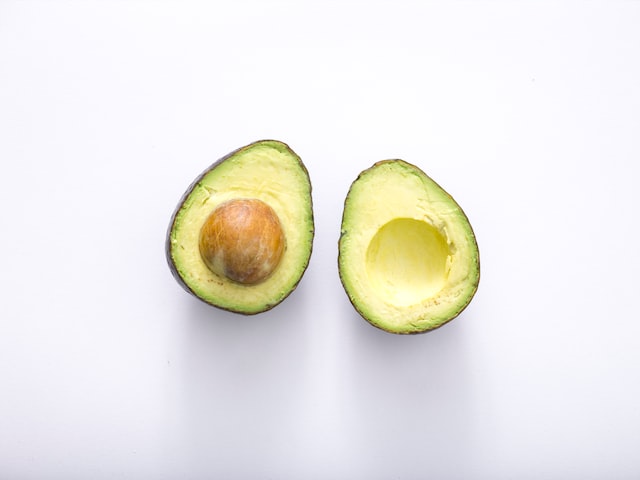
Pictured: Omega-3s are found in avocados.
Oestrogen offers some protection from heart disease and so a women's risk for it becomes much the same as men's after menopause. Omega-3s are a type of fat that can help keep the heart healthy.
They are found in oily fish, walnuts, flaxseeds, chia seeds and avocados. It is recommended that we consume one portion of oily fish a week which is around 140g.
Omega-3s have also been found to help improve mood. If you don’t include these foods in your diet it is worth considering supplementation.
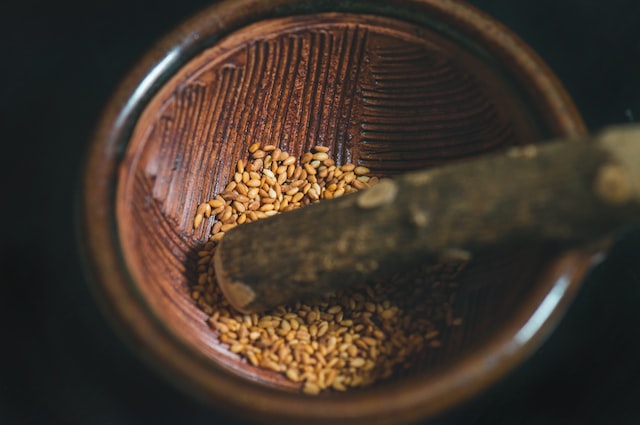
Pictured: Foods that contain plant oestrogens include sesame seeds, flaxseeds, beans, garlic, soya bean, dried apricots and barley.
Plant oestrogens are similar to human oestrogen. Foods that contain plant oestrogens include sesame seeds, flaxseeds, beans, garlic, soya bean, dried apricots and barley. If you consume sufficient portions regularly, they can start to have mild oestrogen-like effects.
For some, these effects could be enough to help relieve menopausal symptoms. It can however take two to three months for any benefits to be seen. Plant oestrogens seem to work better for some than others. It is thought that this could be down to the differences in gut bacteria.

Alcohol has been shown to increase the number or severity of hot flushes or headaches, as well as negatively affecting the quality of your sleep. It also can increase the risk of cancer, heart disease, liver disease, osteoporosis, obesity and depression. It may be time to question your relationship with alcohol and question whether it is supporting your needs at this stage of your life.
Caffeine can also affect our sleep as it stimulates the nervous system and makes you more alert. If you are struggling with any of these symptoms crowd out these drinks with a tasty alternative such as a decaffeinated tea or coffee, alcohol free wine or cocktail, a Ktea kombucha or a Biotiful kefir."
This article first featured on Bailiwick Wellbeing, your free guide to wellness in work and island life to help you start the weekend the right way. Sign up now here.
